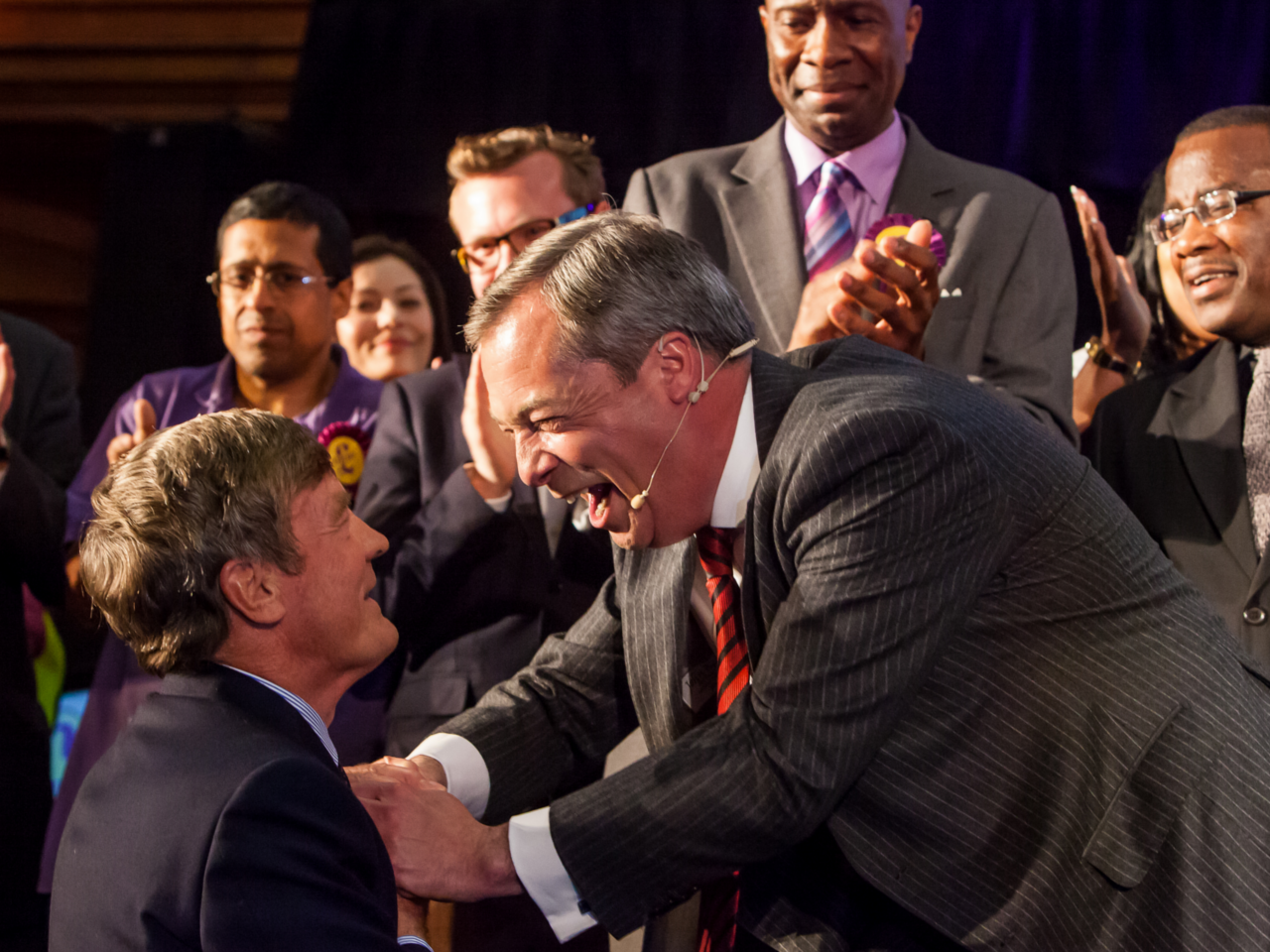The UK Independence Party are on course to win the European Elections in the UK in what looks set to be a historic victory for the insurgent anti-EU party.
With the majority of UK regions having declared their results, at the time of writing UKIP have 22 seats (up 10), the Conservatives 16 (down five), Labour 14 (up five), the Greens two (up one), and the Liberal Democrats one (down eight).
This is the first time in British history that a political party with no MPs in the House of Commons has come first in a national election, and marks a new high point for UKIP as voters abandon the traditional parties.
Speaking after the result for South East England was announced, party leader Nigel Farage described UKIP’s performance as “the most extraordinary event in British politics for 100 years.”
One of the biggest surprises of the night has been the relatively disappointing performance for the main opposition Labour party, who are struggling to finish second ahead of the Conservatives. This will be the first time in 30 years that the main opposition party has failed to win the European Elections, and will inevitably lead to questions about the leadership of Ed Miliband as next year’s General Election approaches.
The party had been a comfortable second in most polls before the elections, with some early polls even putting them in front. The fact they are now struggling for second place with the Conservatives will surprise and disappoint the party’s leadership.
For the Conservatives, the night has also been disappointing, with the party losing many of its MEPs, including the leader of the European Conservatives and Reformists group in the European Parliament. If they do finish third, it will be the first time in the party’s history that it has not come at least second in a national election. The modern party was formed 200 years ago, but traces its lineage back to the original Tories right at the beginning of party politics in England. Never in all that time have they finished third.
If the night has been bad for the Conservatives, it’s even worse for the Liberal Democrats who, at the time of writing, have lost all but one of their MEPs. Across the country they have been pushed into a humiliating fifth place behind the Green Party, even losing support in their traditional heartlands in South West England.
The party, already suffering from a loss of support after joining the coalition government with the Conservatives, decided to set themselves up as the unashamedly pro-EU party. Party leader Nick Clegg took part in a series of televised debates with UKIP leader Nigel Farage in which he tried to argue in favour of the European Union.
That strategy now appears to have failed badly, with the party all but wiped out across the country. They may also hold one seat in London, but they are unlikely to pick any more up elsewhere. Party president Tim Farron admitted that the party had been obliterated, telling the BBC: “We took the unpopular side of the argument… but you know what, I would do it again”.
Attention will now turn to next year’s General Election, and with both main parties performing badly, this could lead to one of the most interesting elections in British history. On the current performance, both the Conservatives and Labour are unlikely to win a parliamentary majority and will likely have to rely on smaller parties to form a government.
There will also be intense focus on whether UKIP will win its first seat in the House of Commons, which judging by its performance tonight, is now a real possibility.
